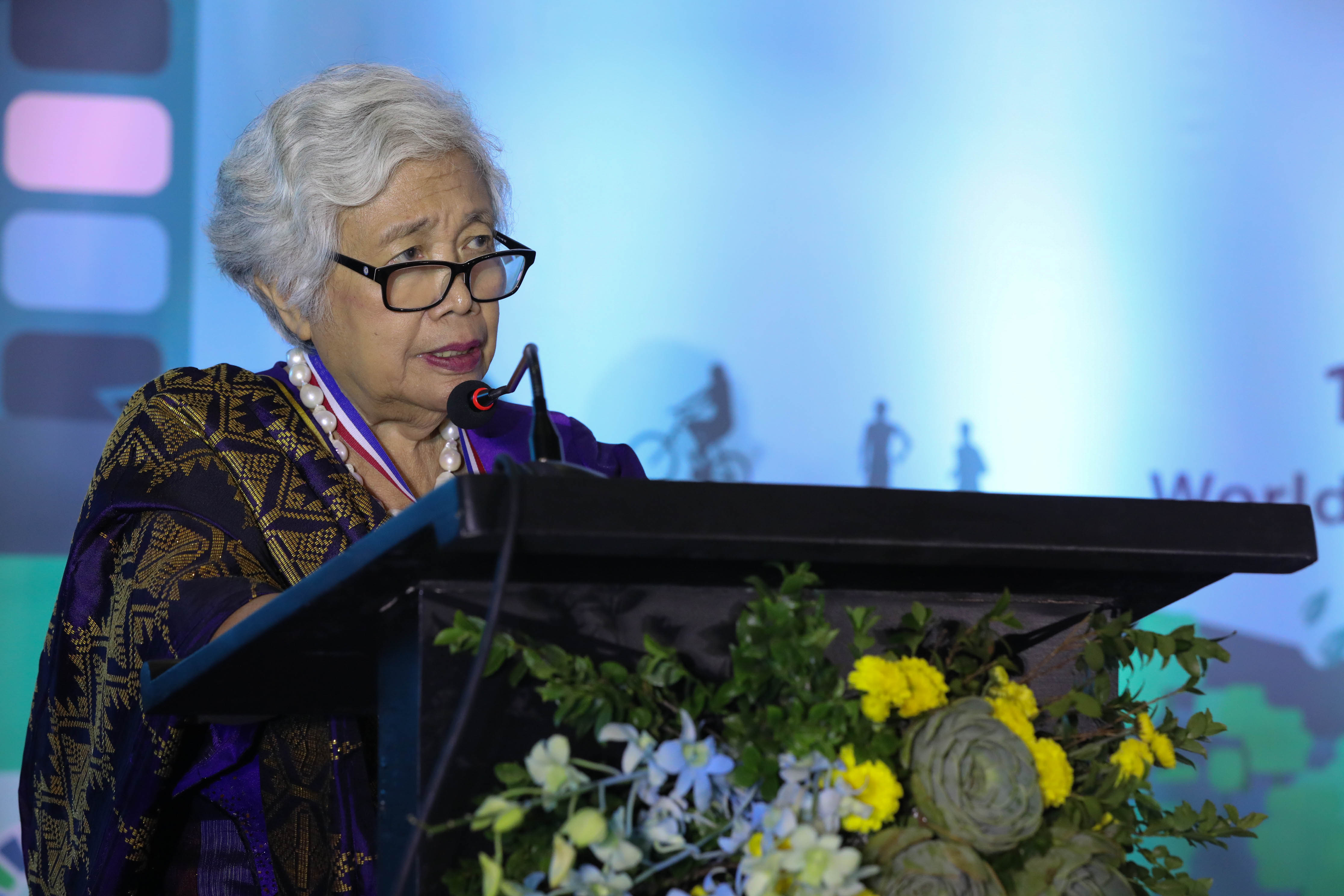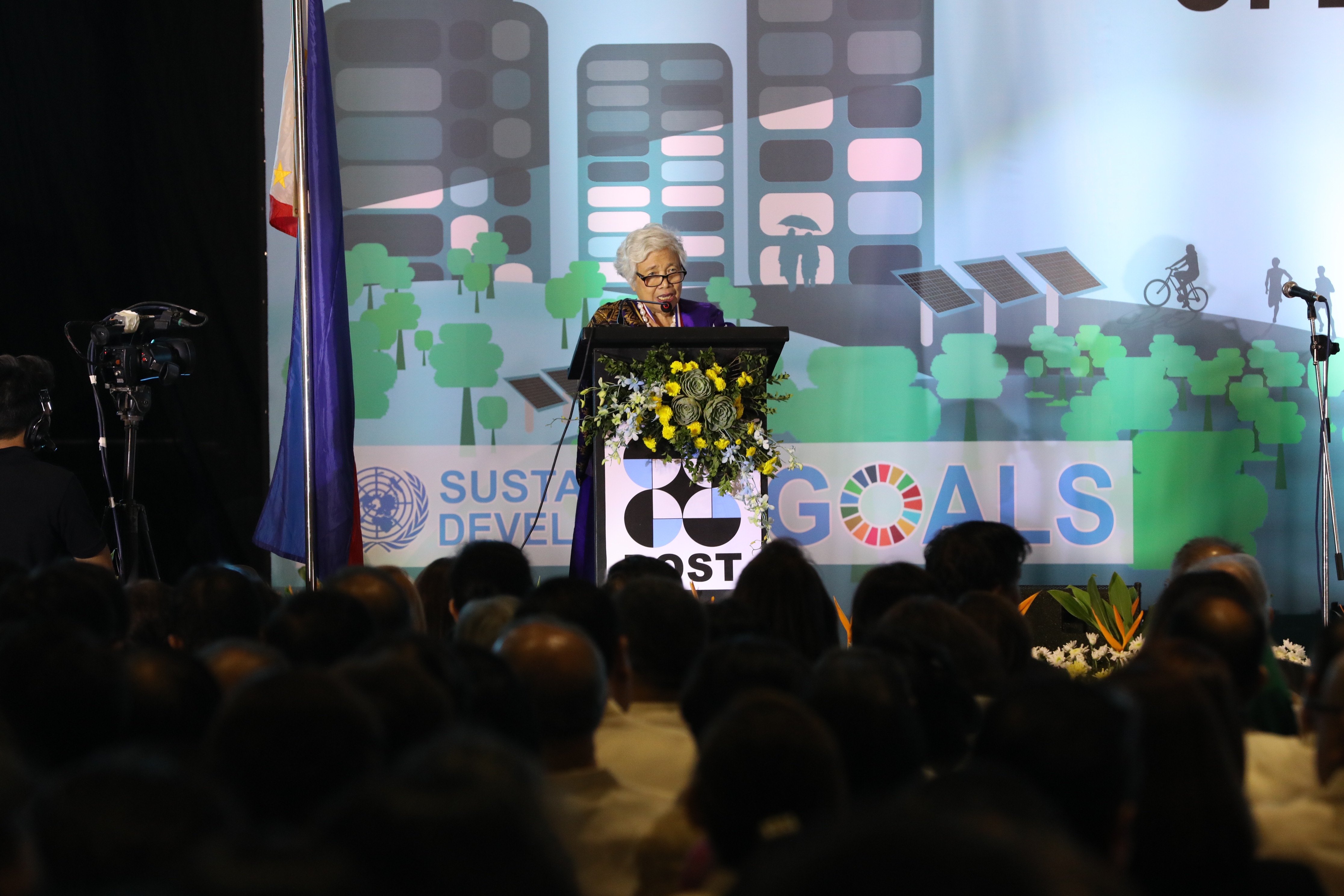PASAY CITY, July 22, 2019 – Department of Education (DepEd) Secretary Leonor Magtolis Briones highlighted the role of science and technology in achieving sustainable human development during the National Science and Technology Week (NSTW) which commenced on July 17 at the World Trade Center.
Speaking on behalf of President Rodrigo Duterte, the Education chief emphasized how science and technology “helps us in meeting our basic needs with our burgeoning population.”
“We have 27.2 million learners in basic education alone and every year, more than a million children enter the school system so that means we need food, clothing, and shelter. And if these are done, these are produced in a traditional way, probably we would not be able to feed all our children or clothe all of them. This is where science comes in,” she explained.
Briones likewise discussed the three major aspects of human development by which a country’s progress is ranked and measured: education, health, and income. She stressed how these have to be attained within the framework of sustainable development, “never at the expense of our environment, never at the expense of the future generations who will suffer if we abuse the resources that we are gifted by nature.”
Strong foundation
The Education chief also thanked the President for his support to the Senior High School program, which she acknowledged as one of his major contributions to education and to science and technology: “Even as he knew that this program would contain many subjects which were not offered before particularly in science, technology, engineering and mathematics; even as there were protests and rallies against Senior High School, he supported it, and therefore has made a very strong foundation for science and technology for the future researchers, for the future scientists who will move on to DOST and to the universities”.
Spearheaded by the Department of Science and Technology (DOST), this year’s NSTW was anchored on the theme, “Science for People: Enabling Technologies for Sustainable Development,” and showcased interactive exhibits on food security, energy and environment, aging society, health and medical care, S&T human resource development, equity and growth in the countryside, biodiversity and sustainable use of biological resources, sustainable cities and communities, resilience and innovation, and international linkages.
“These developments in science help us keep our 27 million children in school so that they grow up as productive citizens,” Briones added.
Scientists as heroes
The NSTW also celebrated and recognized individuals in the field who have shown exemplary undertakings in applied and basic research, and technology and commercialization.
“I would like to congratulate you on behalf of the President and he instructed me to send his greetings and his promise of consistent support for science and technology,” Briones told the awardees.
Finally, she expressed her hopes “that the time will come when we celebrate and honor our scientists, we will have halls filled with people, filled with citizens cheering the way they cheer in basketball games, shouting and screaming the way they do in beauty contests or in political meetings, because certainly, the scientist is one of our greatest Filipinos, and one of our greatest heroes.”
The NSTW was also graced by Senator Francis Tolentino, DOST Secretary Fortunato De la Pena, DOST Grand Ambassador Christopher John Alandy-Dy Tiu, foreign ambassadors and diplomats, private and public universities and basic education institutions, teachers and learners, and science enthusiasts.
END





